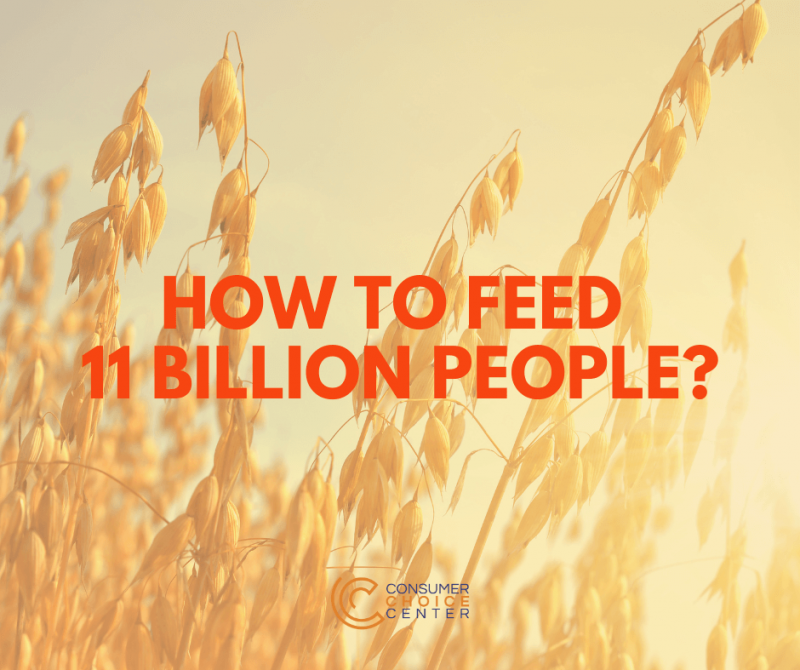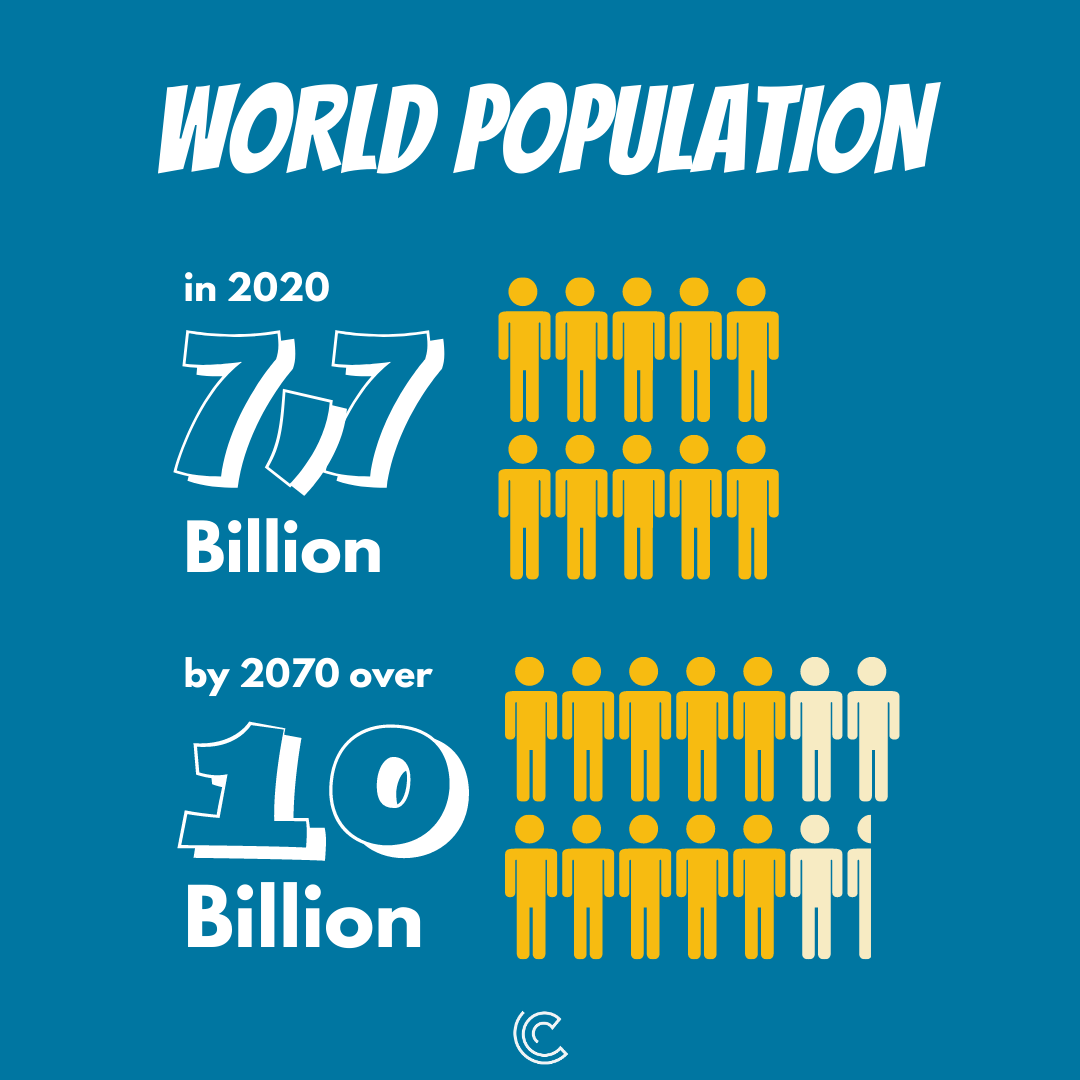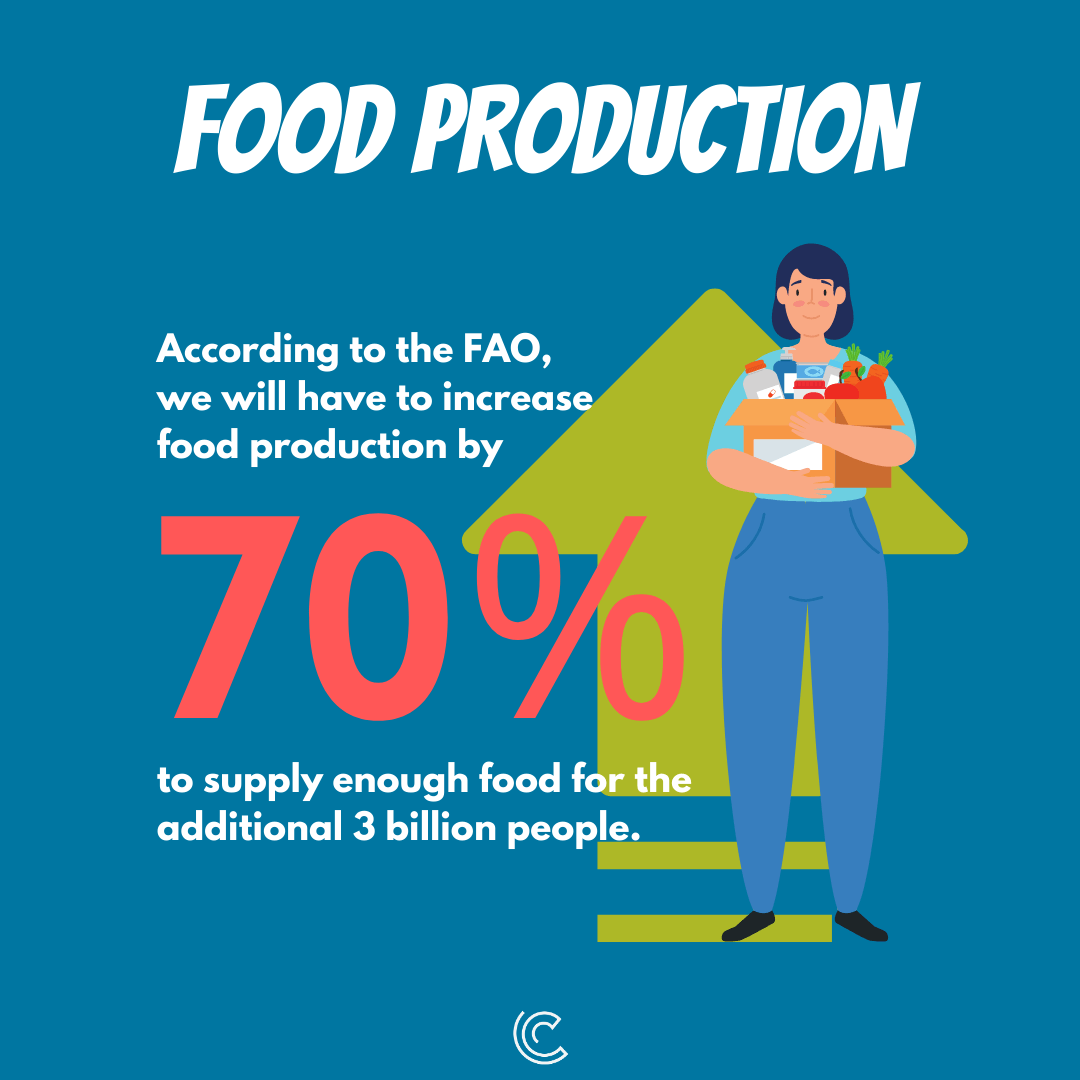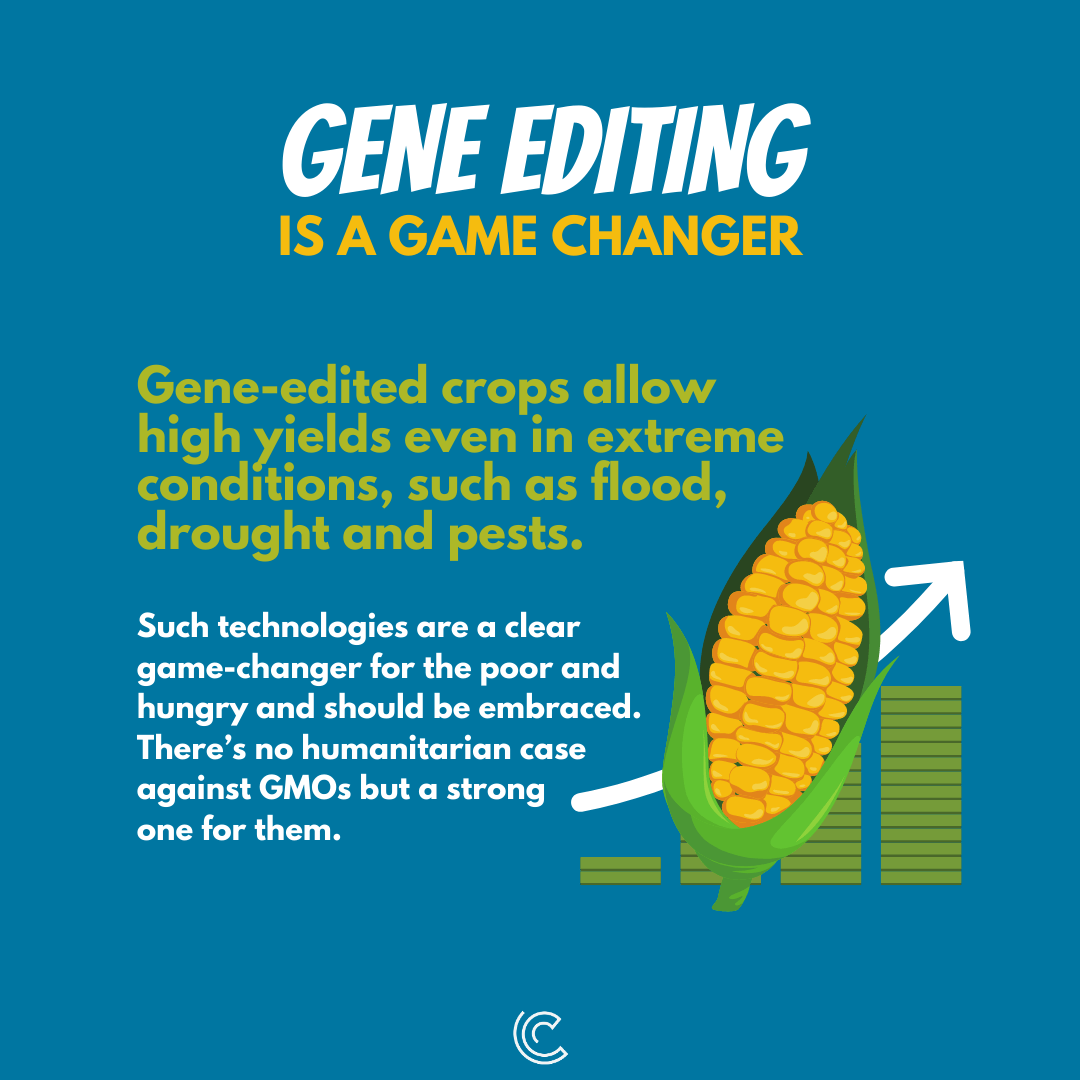
By 2070 the world will be populated by approximately 10.5 billion people. This means that we will need to be able to feed 3 billion additional humans every year. Fortunately, technological advances in agriculture and technology have helped us provide food for an extra 5.5 billion people in the last century compared to the 2 billion humans that populated the earth in 1920. According to the World Food Summit, since 1992, the number of hungry people in lower-middle-income countries has fallen by over 200 million, from 991 million to 790.7 million.
Stanford University estimated that if we would still use the farming technology of 1960, we would need additional farm land of Russia’s size, the world’s largest country, to earn the same yields as current technology. This is a huge success but also leaves us to the task of improving the situation of the remaining children and adults facing hunger as a daily challenge.
Unfortunately, the current political narrative in one of the world’s wealthiest regions seems to ignore the challenges ahead of us and wants us to turn to less efficient farming. The European Union’s Farm to Fork (F2F) strategy sets out to create a more sustainable food system by the end of this decade. However, looking at the currently proposed ideas, it is worrisome that this new policy framework will achieve the opposite of sustainable farming and lead not just Europe but the entire world in a potential food crisis with massive geopolitical ramifications.
The EU plans to increase the share of organic farming as a total of agricultural production from currently 7.5% to 25%. Additionally, they plan a reduction of 50% in pesticides. At the same time, the F2F strategy does not embrace new technologies that allow farmers to achieve the same yields they are able to produce using the current level of pesticides.
For several reasons, including its low yields and the consequent need to bring more land into agricultural production, organic farming is particularly detrimental to meeting the world’s food demand.
What does this mean for feeding 10.5 billion people in 2070?

More organic farming in Europe means lower yields of EU food production and higher prices for consumers. The shortage in Europe will be likely compensated by additional food imports from other parts of the world. This will lead to a global increase in food prices. For affluent regions of the world such as Europe, this will be rather a nuisance for consumers. This will have very negative consequences for people already living at the edge of existence and facing hunger.
The Food and Agriculture Organization of the United Nations (FAO) estimated that farmers globally would lose 30%-40% of their crops due to pests and diseases if they don’t have crop protection tools such as insecticides or herbicides on hand. Up to 28% of all liver cancers worldwide can be attributed to aflatoxins, a mycotoxin type. Without allowing farmers to apply fungicides that reduce human exposure to these toxins, we keep risking millions of lives.

In the last 100 years, pesticides have been proven to be a necessary evil in achieving higher and more predictable crop yields. In the past 60 years, we have seen a reduction of 40% in pesticide use per acre, and many less safe substances have been phased out. The emergence of genetically modified crops and the latest breakthroughs in gene editing allows a further reduction of spraying chemicals on the fields.
About 20% of the world population lives in South Asia. Due to India’s caste system farmers of the lowest castes live and farm on land that is more likely to experience regular floodings, with detrimental results for their rice harvest. Gene-edited crops allow the rice to submerge underwater for up to two weeks and still provide high yields. Such technologies are a clear game-changer for the poor and hungry and should be embraced. There’s no humanitarian case against them but a strong one for them.

Unfortunately, many critics of pesticides also oppose the use of gene editing. This leads to a dilemma that ultimately brings us to less food produced while global food demand will keep growing. One does not need to be an economist to understand that this will result in higher food prices.
We all have seen the dramatic refugee crisis in 2015 including all the terrible suffering and drowning of children and women in the Mediterranean. While the EU’s policies did not trigger this crisis, our future agricultural policies might cause widespread famines in parts of Africa and Asia. They might start a migration wave we haven’t seen since the migration period in the 5th and 6th centuries. History unfortunately shows that such massive uncontrolled migration streams usually also come with war and unrest.
The ‘western’ idea of making farming more organic will lead to a global food price inflation and hurt those that already struggle. We indeed all share one planet and therefore need to have sensible food policies that acknowledge hunger still being a problem 10% of the world population faces daily. No one, no matter if one is a proponent of mass migration or not, should desire a massive influx of starving people. Several adjustments to the EU’s future policies are needed in order to mitigate many negative drivers of poverty and hunger.
The EU’s Farm to Fork strategy needs to take this into account and not jeopardize our ability to feed an ever-growing population.
Fred Roeder is a consumer advocate and health economist from Germany and has worked in healthcare reform in North America, Europe, and several former Soviet Republics. Since 2012 he has served as an associated researcher at the Montreal Economic Institute. Fred can be found on Twitter @FredCyrusRoeder
Originally published here.


